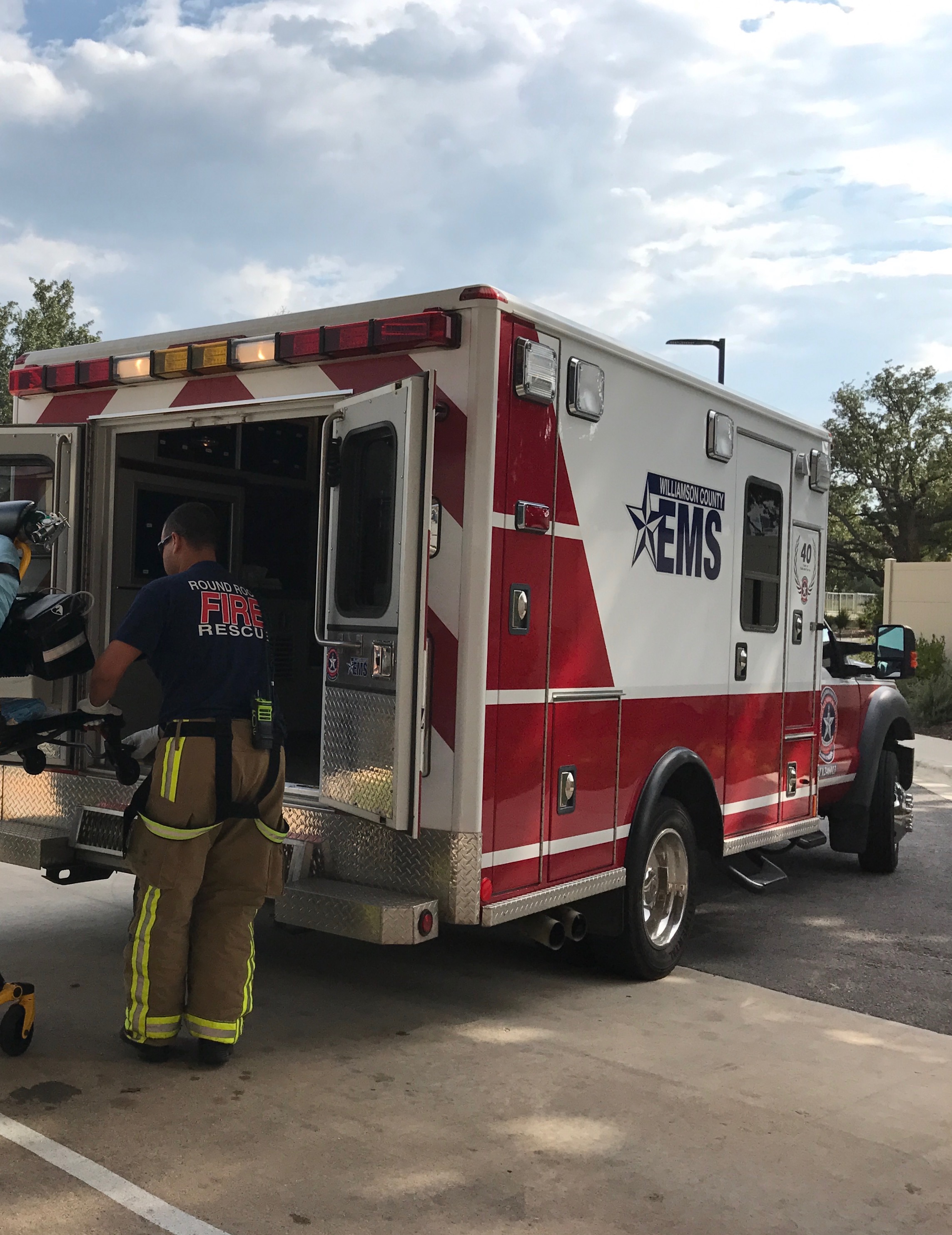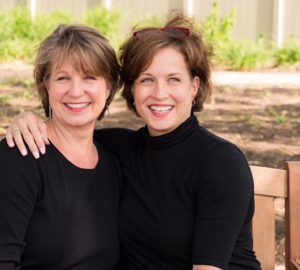Alzheimer’s – The Fall

A couple of weeks ago I shared a bit about my Mom and our challenges with her progressing Alzheimer’s Disease. Little did I know then that less than a month later my sister and I would be full-time caregivers and that she would be in such dire condition.
Elderly falls are the worst
Very early on Friday, 22 September, Mom fell in her room at Poet’s Walk, the memory care facility we called her “home”. The portable x-ray didn’t show any break, but she was in pain and couldn’t walk or even sit up. Friday and Saturday, she didn’t get out of bed. Sunday, the aides sat her up in a wheel chair putting her in excruciating pain. On the evening of Sunday, 24 September, to the ER we went.
In the ER, the CT showed a fracture in the pelvis. The MRI didn’t show anything more. The fracture is not operable and will take about 6-8 weeks to heal – a normally healthy adult to heal. We are looking at 8-10 weeks for Mom. The ER doc wanted to admit mom to the hospital “for observation”. FOR OBSERVATION is a critical differentiator for Medicare patients. There will be another discussion that addresses this and the quality (or lack thereof) of communication at the hospital (St. David’s Medical Center Round Rock).
Fast forward to 30 September; Mom is released from the hospital (having been officially admitted on Wednesday 27 September… again, the status of “for observation” vs “admitted patient” is VERY different.). She has a catheter, cannot care for herself, cannot sit up on her own, can’t communicate well… unless she is unhappy about something. She can certainly communicate her displeasure and discomfort. Very well.
Full-time caregivers
Having cared for our Dad full-time during the last month of his life, we are seeing familiar characteristics. While Mom has not eaten much of anything, has been bed-ridden for over a week and in a hospital for most of that time, she is AMAZINGLY strong. (It took 5 – FIVE – strong nurses and techs to change her catheter before being released yesterday.) The woman can fight. She may recover and get through this. I wouldn’t be surprised. But, I also am not expecting her to get through this.
Karen and her husband are shouldering the load of her care, in that Mom is at their home. This afternoon we meet with a Visiting Angels rep to discuss help with Mom overnight. She doesn’t sleep for more than a few minutes at a time and talks, talks, talks to someone we don’t see. But whoever it is, they are in regular communication. Mom has also pulled out her catheter a couple of times and needs to be monitored for that. Karen and I talked and decided we could help each other during the day, but we each needed overnight to make sure we are able to care for her during the day. We will meet with a Hospice organization and will hopefully have finalized assistance by the time you are reading this.

I don’t know what I’d do without Karen and I’m sure she feels the same. We are truly a team. We worked together through Dad’s last days and are together for Mom. If there is one wish I have for anyone is to have support and love as you help a loved one at the end of their life. Thank you all for your virtual support, comments, likes and good thoughts. It means a great deal. For my upcoming posts I’ll be sharing glimpses into this journey, always looking for the silver lining, humor ,and truth. Thank you, again.
My heart goes out to you, Kathy—and of course to Lynnelle. My mom has been gone many years, and I know we are fortunate that she did not have Alzheimer’s and that her final illness was very quick. She died in a hospital three days after falling and breaking her hip. There was no surgery as a brain bleed was caused her to go into a coma. She had a DNR and passed very quickly and the hospital handled everything brilliantly. I would wish that or better for everyone.
We cannot change a lot of things but we can change a system that makes everything harder for the patients and their families—especially when that system is supposed to help those same people.
My wish for you is first, that you and your loved ones get the support and care that is needed. And second, that you all understand you are doing your best, with loving intentions, and while taking care of your families and perhaps your jobs. You can only do your best. You will make mistakes, you will be tired and short, you will be very, very sad. All of that is OK. When everything is over, know that you did your best, you made every decision with love, and you have nothing to regret. Hugs and love to you.
I can relate to this. My mother-in-law has late onset Alzheimers. Her short term memory is poor, and her sense of time is not quite there, but she is still in the stage where she knows who we all are and she knows where she is and what happened to her. We are very lucky that she is a positive, cheerful person and so far exhibits none of the anxiety or combativeness that other Alzheimer patients have. She too recently had a fall and fractured a non-weight bearing part of her pelvis. Our ER never mentioned hospitalization. In fact, they handed her a walker, had her walk two steps (and it was obvious to everyone in the room that she was in excruciating pain as she obliged the perky nurse) and informed us they were going to discharge her with only the orders “Tylenol as needed” and “weight-bearing as tolerated.” I had to corner the nurse at the nurses’ station and remind her that my mother-in-law lived in an independent living apartment with her husband, and had Alzheimers. There was no way they could just discharge her home, her husband couldn’t possibly be there 24/7 to give her all the help she needed, and though her daughter and I were willing to set up camp, wouldn’t it be best for her to transition into a skilled nursing/rehab place where she’d have professional help and physical and occupational therapy? This idea seemed to throw the whole ER staff. They’d need to consult a case manager who would need to call in a social worker, who would need to find a doctor willing to admit her to the skilled nursing area, and the ER doctor would have to change his orders too. Then they said to us that it probably wasn’t going to happen because Medicare wouldn’t pay for it because she had not first been admitted to the hospital (and yes, not for observation, but as a real patient) for three overnight stays. We had to push for the process to start, because they seemed stuck on the fact that Medicare wouldn’t pay for it. Never mind what she NEEDED. After eight and a half hours in the ER while the staff worked to do what we’d requested (and we hunted for help so she could go to the bathroom, scrounged food for her to eat and made arrangements for wheelchair transport because the ER somehow thought she could get up out of bed and into a car) we finally got her settled into the skilled nursing/rehab section of the elderly facility where she had her independent living apartment. After two weeks during which the physical therapist lamented that “for some reason” my mother-in-law couldn’t remember the “simplest instructions” of how to get up out of a chair or how to use a walker (we had signs made up to remind her to call for help) the skilled nursing staff informed us insurance wouldn’t pay for a longer stay so she had to go back to her apartment. We asked about Assisted Living and were again told no, she didn’t qualify because Medicare wouldn’t pay. It took several conversations until we found out that yes, of course she could go into Assisted Living until she was strong enough and healed enough to go back to her apartment. She’s three weeks into the healing process now, moving easier when walking, but getting to her feet (out of a chair or the bed) is still very painful and can’t be done alone, and of course, her memory isn’t getting any better; she forgets to use the call button on her necklace and a scolding by the staff is just mean and doesn’t help. I don’t know how the elderly are able to navigate such a poorly set-up health care system – even one MEANT for the elderly! – without at least one person to advocate for them.
Oh, Kathy. Thank you for sharing your experience. It is SO unfortunate how our country has made medical care so difficult, expensive and nearly impossible to navigate. The elderly are truly a forgotten class. I am so glad your mother-in-law has you and her daughter to fight for mere NORMAL care. My Mom was finally “admitted” because she ended up with a UTI (urinary track infection) and needed antibiotics. She wasn’t there for the 3 days, so God knows what kind of fight we are going to have. We brought her home Saturday night and tonight, Tuesday, we are working with Hospice. I’m going to post a short note tomorrow (Wed), bringing you up to date, but it is very, very difficult. I can’t tell you how much I appreciate you taking the time to leave your comment. Thank you, Kathy. We aren’t alone when we have each other. xo
Caring for our elderly parents can be a challenge under the best of circumstances. Sending you and Karen much love and virtual hugs. You’ll be in my thoughts and prayers.
Hi Gloria. Yes. It is unbelievably challenging – physically and emotionally. So many things you must do (or not do) that seem contrary to what you would normally do. Hospice is such a help. Karen and I finally feel like we’re doing the right thing. Thank you for your note.